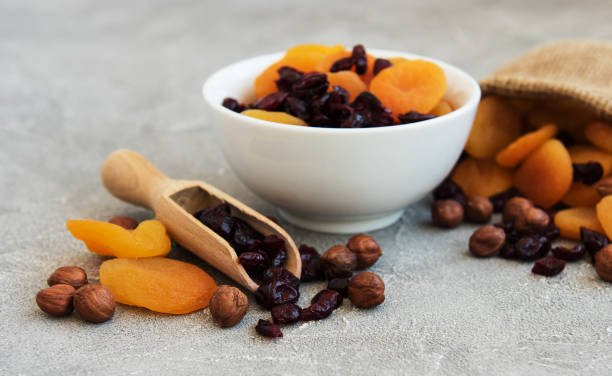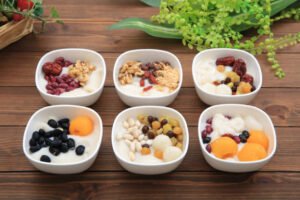Looking to boost your baking game with a healthy twist? Discover the versatility of apricot dry fruit in creating delicious, nutritious, and satisfying treats for every occasion!
Introduction to Apricot Dry Fruit in Healthy Baking
In recent years, health-conscious baking has emerged as a significant trend, driven by the desire to maintain a healthier lifestyle without giving up indulgent treats. The demand for healthy, nutrient-dense alternatives to conventional ingredients has opened the door to the use of natural foods that provide both flavor and nutrition. Among these, apricot dry fruit stands out as a versatile and nutrient-rich ingredient that can transform ordinary baked goods into healthy masterpieces.
Apricot dry fruit, with its natural sweetness, chewy texture, and wealth of vitamins and minerals, is an ideal choice for bakers looking to create healthier desserts, breads, and snacks. Whether you’re a novice baker or a seasoned professional, incorporating apricot dry fruit into your recipes offers endless possibilities for flavor, texture, and nutrition.
The Rise of Health-Conscious Baking
As more people become aware of the impact of diet on health, the trend toward health-conscious baking continues to gain momentum. This shift is not just about reducing calories—it’s about making intentional ingredient choices that prioritize whole foods, lower sugar content, and higher nutritional value. In this evolving landscape, bakers are turning to natural ingredients like dried fruits to replace less healthy options, such as refined sugars and processed fats, in their favorite recipes.
Apricot dry fruit fits perfectly into this new paradigm of baking, where flavor, health, and sustainability meet. Whether you’re looking to cut back on processed sugars, boost fiber intake, or simply explore new and exciting flavors, apricot dry fruit has a lot to offer.
Why Baking with Fruits Is Trending
The popularity of baking with fruits, particularly dried fruits, has exploded in recent years. This trend is largely driven by the desire to reduce reliance on refined sugars and artificial sweeteners while still enjoying the sweet treats that many of us love. Fruits, especially dried ones like apricots, bring a natural sweetness to baked goods, along with added fiber, vitamins, and minerals that promote better health.
Another reason fruit is becoming a go-to ingredient in baking is its versatility. Dried fruits can be incorporated into virtually any type of baked good—from muffins and cookies to breads and cakes—while providing unique flavors and textures that elevate the final product.
Apricot Dry Fruit: Nutritional Profile
One of the key reasons why apricot dry fruit is such a popular ingredient in healthy baking is its impressive nutritional profile. Rich in vitamins, minerals, and fiber, this fruit packs a nutritional punch that enhances the health benefits of any recipe.
Vitamins, Minerals, and Fiber
Apricots are a powerhouse of nutrients, particularly when dried. A single serving of apricot dry fruit is rich in vitamins A and C, which play vital roles in immune health, skin health, and vision. Vitamin A (in the form of beta-carotene) supports good vision and helps protect your skin from damage. Vitamin C is an antioxidant that strengthens your immune system and supports skin elasticity by encouraging collagen production.
In addition to vitamins, apricot dry fruit provides important minerals like potassium and magnesium. Potassium is essential for regulating blood pressure, while magnesium supports muscle and nerve function, and aids in bone health. The high fiber content of apricot dry fruit also promotes healthy digestion, helping to prevent constipation and promoting gut health.
Natural Sweetness and Health Benefits
One of the major benefits of using apricot dry fruit in baking is its natural sweetness. Unlike refined sugars, which provide empty calories and lead to spikes in blood sugar levels, apricot dry fruit offers a healthier alternative. Its natural sugars are released more slowly into the bloodstream, which helps prevent the rapid spikes and crashes associated with high-sugar foods. This makes apricot dry fruit a great option for those looking to reduce their sugar intake or manage conditions like diabetes.
Additionally, apricots contain natural compounds like polyphenols and flavonoids, which have been shown to have antioxidant and anti-inflammatory properties. These compounds help to protect the body from oxidative stress and reduce the risk of chronic diseases such as heart disease, diabetes, and certain cancers.
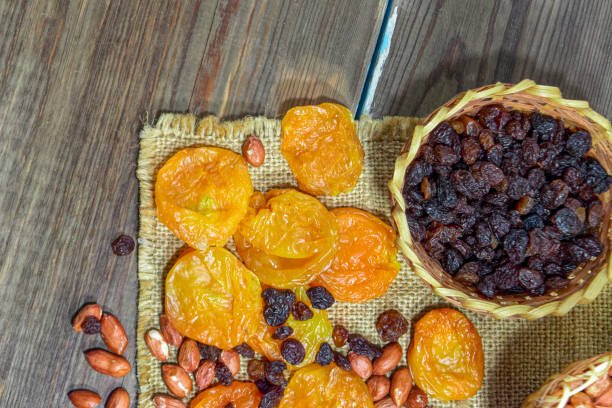
Benefits of Using Apricot Dry Fruit in Baking
Now that we’ve explored the nutritional benefits of apricot dry fruit, let’s dive into how these benefits translate to baking. Using apricot dry fruit in your baked goods not only adds flavor but also provides a range of health benefits that can help you achieve a balanced, nutritious diet.
Natural Sweetener Replacement
One of the biggest challenges in health-conscious baking is finding a suitable replacement for refined sugar. Many alternative sweeteners, like artificial sweeteners or even natural ones like agave syrup, can still have adverse effects on blood sugar levels or overall health. Apricot dry fruit, however, provides a natural, whole-food alternative that doesn’t compromise on flavor or nutrition.
Reducing Processed Sugars
Reducing your intake of processed sugars is one of the best things you can do for your overall health. Refined sugars have been linked to a range of health issues, from weight gain to increased risk of chronic diseases like heart disease and type 2 diabetes. By using apricot dry fruit as a natural sweetener in your baked goods, you can cut down on processed sugars without sacrificing sweetness or flavor.
Because apricot dry fruit contains natural sugars, it provides a slower release of energy compared to refined sugars, helping to prevent the energy crashes that can occur after consuming sugary foods. This makes it an ideal ingredient for those looking to maintain stable energy levels throughout the day.
Enhancing Flavor without Artificial Additives
Another benefit of using apricot dry fruit in baking is its ability to enhance the overall flavor of your recipes without the need for artificial additives. The natural sweetness and slight tartness of apricots complement a wide range of other flavors, making them a versatile ingredient that can be used in both sweet and savory baked goods.
By incorporating apricot dry fruit into your recipes, you can create baked goods that are not only healthier but also more flavorful, with a depth and complexity that can’t be achieved with artificial ingredients.
Boosting Fiber Content in Baked Goods
Fiber is an essential nutrient that many people don’t get enough of in their diets. Incorporating apricot dry fruit into your baking is a great way to boost the fiber content of your recipes and promote better digestive health.
Why Fiber Matters in Your Diet
Fiber plays a crucial role in maintaining digestive health and preventing constipation. It also helps to regulate blood sugar levels and promote feelings of fullness, which can aid in weight management. A diet high in fiber has been linked to a reduced risk of chronic diseases like heart disease, type 2 diabetes, and certain types of cancer.
By adding apricot dry fruit to your baked goods, you can increase the fiber content of your recipes, helping to keep you full longer and support healthy digestion. This is particularly beneficial for those looking to maintain a healthy weight or improve their overall gut health.
Antioxidant Power for Healthier Desserts
In addition to being a great source of vitamins, minerals, and fiber, apricot dry fruit is also rich in antioxidants, which help protect the body from damage caused by free radicals.
Combatting Free Radicals with Apricots
Free radicals are unstable molecules that can cause oxidative stress in the body, leading to cell damage and an increased risk of chronic diseases. Antioxidants, like those found in apricots, help neutralize free radicals and protect the body from their harmful effects.
By incorporating apricot dry fruit into your baked goods, you’re not only adding a delicious flavor but also boosting the antioxidant content of your desserts. This can help reduce inflammation, protect against chronic diseases, and promote overall health.
Texture and Moisture Enhancement in Recipes
One of the challenges of healthy baking is maintaining the texture and moisture of your baked goods without relying on unhealthy fats or sugars. Apricot dry fruit offers a solution to this problem by adding moisture and texture to your recipes in a natural and healthy way.
Replacing Fats with Fruit-Based Moisture
Many traditional baking recipes rely on butter, oil, or other fats to provide moisture and texture. However, these ingredients can significantly increase the calorie and fat content of your baked goods. By using apricot dry fruit as a substitute for some or all of the fats in your recipe, you can reduce the overall fat content while still maintaining a moist and tender texture.
Apricots are naturally high in water, which helps keep your baked goods soft and moist. This makes them an ideal ingredient for replacing unhealthy fats in recipes like cakes, muffins, and breads.
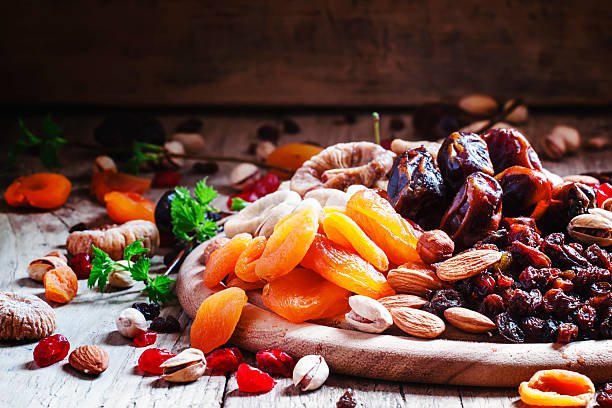
Versatility of Apricot Dry Fruit in Baking
One of the reasons apricot dry fruit is such a popular ingredient in baking is its incredible versatility. Whether you’re looking to make sweet desserts or savory breads, apricot dry fruit can be used in a wide range of recipes to add flavor, texture, and nutrition.
Sweet and Savory Options with Apricots
Apricot dry fruit is unique in that it pairs well with both sweet and savory ingredients. This makes it a versatile ingredient that can be used in a variety of baked goods, from sweet treats like cookies and cakes to savory breads and scones.
Baking Desserts with a Fruity Twist
In sweet desserts, apricot dry fruit adds a fruity twist that complements a range of other flavors. Its natural sweetness pairs well with spices like cinnamon and nutmeg, as well as with other fruits like apples, pears, and berries. You can incorporate apricots into cakes, cookies, muffins, and even pies to add a burst of flavor and a chewy texture that enhances the overall experience of your baked goods.
Creating Savory Baked Goods with Apricots
Apricot dry fruit isn’t just for sweet treats. Its slightly tart flavor makes it an excellent addition to savory baked goods as well. Try incorporating apricots into savory scones, breads, or even flatbreads to add a unique flavor that pairs well with herbs like rosemary and thyme, as well as with savory ingredients like cheese and nuts.
Popular Apricot Dry Fruit Recipes for Health-Conscious Bakers
To inspire your next baking project, here are a few popular apricot dry fruit recipes that showcase the versatility of this healthy ingredient.
Apricot Oatmeal Cookies Recipe
These chewy and flavorful cookies are made with rolled oats, apricot dry fruit, and a touch of honey for natural sweetness. Perfect for a healthy snack or dessert, these cookies are packed with fiber, vitamins, and minerals to keep you energized throughout the day.
Ingredients for a Healthy Cookie
- 1 cup rolled oats
- 1/2 cup whole wheat flour
- 1/4 cup honey
- 1/4 cup coconut oil
- 1/2 cup chopped apricot dry fruit
- 1/4 tsp cinnamon
- 1 tsp vanilla extract
- 1/4 tsp baking soda
- A pinch of salt
How to Prepare
- Preheat your oven to 350°F (175°C).
- In a mixing bowl, combine the rolled oats, whole wheat flour, cinnamon, baking soda, and salt.
- In a separate bowl, whisk together the honey, coconut oil, and vanilla extract until smooth.
- Add the wet ingredients to the dry ingredients and mix until well combined.
- Fold in the chopped apricot dry fruit.
- Drop spoonfuls of the cookie dough onto a baking sheet lined with parchment paper.
- Bake for 10-12 minutes, or until the cookies are golden brown.
These apricot oatmeal cookies are not only delicious but also nutritious, providing a healthy alternative to traditional cookies loaded with refined sugars and unhealthy fats.
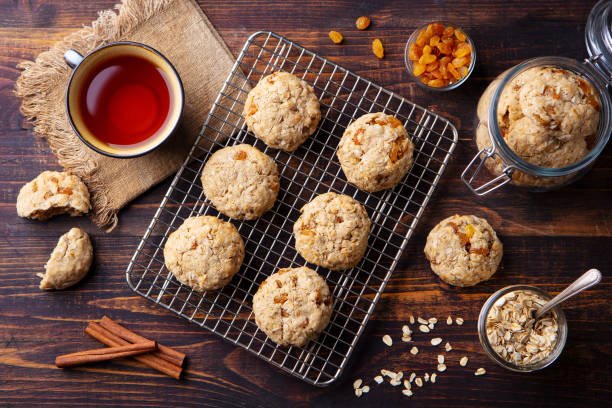
Apricot Loaf Bread Recipe
This moist and flavorful apricot loaf bread is perfect for breakfast or as a healthy snack. Made with whole wheat flour, Greek yogurt, and apricot dry fruit, this bread is packed with protein, fiber, and vitamins to keep you full and satisfied.
Ingredients for a Healthy Loaf
- 1 1/2 cups whole wheat flour
- 1/2 cup Greek yogurt
- 1/4 cup honey
- 1/4 cup coconut oil
- 1/2 cup chopped apricot dry fruit
- 2 eggs
- 1 tsp baking powder
- 1/4 tsp baking soda
- 1/4 tsp salt
- 1 tsp vanilla extract
How to Prepare
- Preheat your oven to 350°F (175°C).
- In a mixing bowl, whisk together the whole wheat flour, baking powder, baking soda, and salt.
- In a separate bowl, whisk together the Greek yogurt, honey, coconut oil, eggs, and vanilla extract until smooth.
- Add the wet ingredients to the dry ingredients and mix until well combined.
- Fold in the chopped apricot dry fruit.
- Pour the batter into a greased loaf pan.
- Bake for 40-45 minutes, or until a toothpick inserted into the center comes out clean.
This apricot loaf bread is a great option for a healthy breakfast or snack, providing a good balance of protein, fiber, and healthy fats to keep you satisfied throughout the day.

Tips for Incorporating Apricot Dry Fruit into Your Baking
When using apricot dry fruit in your baking, there are a few tips and tricks to keep in mind to ensure the best results.
Choosing the Right Apricots: Dried vs. Fresh
While both dried and fresh apricots can be used in baking, dried apricots offer a more concentrated flavor and longer shelf life. Additionally, dried apricots are often easier to work with in recipes that require a chewier texture.
Preparing and Rehydrating Apricot Dry Fruit
If your apricot dry fruit is particularly dry or tough, consider rehydrating it before incorporating it into your recipes. This can be done by soaking the apricots in warm water or juice for 10-15 minutes. Rehydrating apricots can help improve their texture and make them easier to incorporate into your batter or dough.
Storing Apricot-Based Baked Goods
To keep your apricot-based baked goods fresh and delicious, store them in an airtight container at room temperature for up to five days. Alternatively, you can freeze them for longer storage. The natural moisture in apricot dry fruit helps keep your baked goods from drying out too quickly.
Conclusion: Why Apricot Dry Fruit Is a Baking Superfood
Incorporating apricot dry fruit into your baking is a simple and delicious way to boost the nutritional value of your recipes while adding a unique flavor and texture. From its natural sweetness and high fiber content to its impressive antioxidant properties, apricot dry fruit is a versatile and health-promoting ingredient that deserves a place in every baker’s pantry.
FAQs
1. What is the use of apricot dry fruit?
Apricot dry fruit is commonly used in a variety of ways, including as a healthy snack, an ingredient in baking and cooking, or as a natural sweetener in desserts. It’s rich in vitamins, minerals, and fiber, making it beneficial for digestion, skin health, and boosting the immune system. It can also add a chewy texture and natural sweetness to baked goods, salads, and trail mixes.
2. Should dried apricots be soaked?
Soaking dried apricots is not always necessary but can enhance their texture and flavor, especially if they are very dry. Soaking them in water or juice for 10-15 minutes helps soften them, making them easier to digest and incorporate into recipes like baked goods or salads. Rehydrating also makes them plumper and juicier.
3. Is dried apricot high in sugar?
Dried apricots do contain natural sugars, but they are not considered high in refined sugars. However, due to the dehydration process, their sugar content becomes more concentrated compared to fresh apricots. They provide natural energy, and while the sugars are not harmful in moderation, it’s essential to watch portion sizes, especially for individuals managing blood sugar levels.
4. What is the recommended daily intake of dried apricots?
The recommended daily intake of dried apricots depends on individual nutritional needs, but generally, 4 to 6 dried apricots per day is a good guideline. This portion provides about 50 calories, and a healthy dose of vitamins A, C, potassium, and fiber, without contributing too much sugar or calories to the diet.
5. Are dried apricots bad for cholesterol?
No, dried apricots are not bad for cholesterol. In fact, they can be beneficial for heart health. They are rich in fiber, particularly soluble fiber, which can help reduce LDL (bad) cholesterol levels. Their antioxidant content also supports overall cardiovascular health. Just be sure to avoid apricots that have added sugars or preservatives, which could have negative effects.
